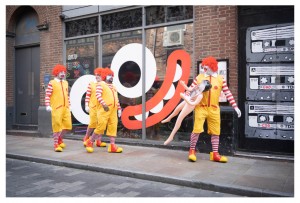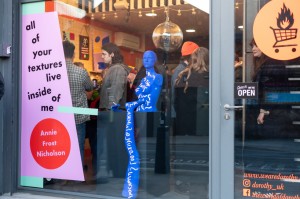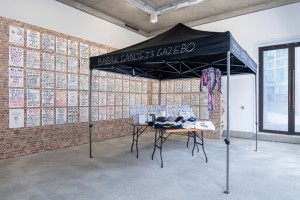“There is no one ‘Spirit of the North’” – The Return of the Portico Prize
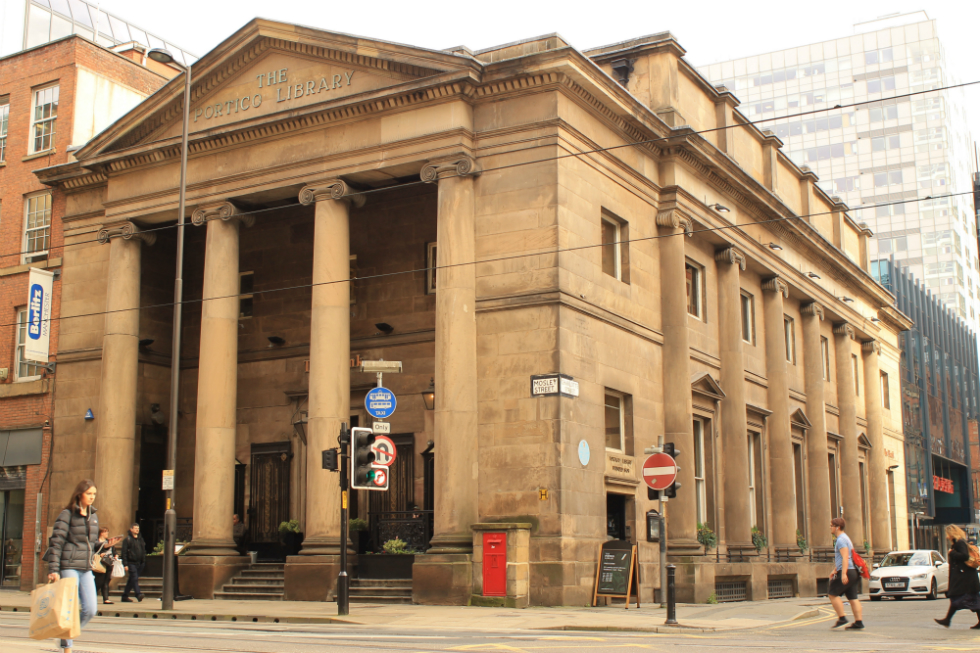
What, if such a thing exists, is the ‘spirit of the North’? Joe Fenn on the vexed question, and return of the Portico Prize, which asks its entrants to capture exactly that…
A search for the ‘spirit of the North’ is from the outset an uncertain task. While ‘the North’ is regularly invoked as a single entity everywhere from pop to politics, the reality of the region is far more complex. Contained within its contested borders are a thousand things and their opposites – the rich and the poor, the modern and the ancient, the urban and the rural – which together pose an obvious question. Can any single thing unite these contradictory elements; can a ‘spirit of the North’ even exist?
Following a four-year hiatus, the Portico Prize for Literature has returned to ask, and hopefully answer, some of these questions. Since 1985 this uniquely Northern literary event, hosted by Manchester’s historical Portico Library (above), has sought books of fiction, non-fiction and poetry which ‘best evoke the spirit of the North’. The core criteria are simple; the book must have been published in the past two years, and it must be set largely or wholly in the North of England, the borders thereof open to the interpretation of authors and judges. One winner will pocket £10,000 and join an estimable list of alumni featuring bestseller Val McDermid, poet laureate Simon Armitage, and Mancunian cultural icon Anthony Burgess.
The prize returns to a Northern literary landscape that has bloomed in its absence, the region’s proud history augmented by major recent developments. 2017 saw the formation of the Northern Fiction Alliance, an ever-growing group of independent publishers who through collaboration are beginning to challenge London’s long-standing dominance of the industry. In 2019, Manchester was designated as England’s second UNESCO City of Literature. And for several years, writers working across the region – Fiona Mozley, Benjamin Myers, Andrew Michael Hurley and more – have featured heavily in long- and shortlists for the most esteemed national awards. The North-shaped hole in the cultural calendar left by the Portico has only grown in their absence, and its return comes not a moment too soon.
But it is another major development in the world of books that makes this comeback most timely. The past five or so years has seen the slow gravitation of various authors and forms into the newly recognised genre of place writing. Like the best artistic movements, the term defies succinct definition, but loosely describes works in which setting takes centre-stage, elevated beyond its physical features until it becomes a driving force in the narrative. These vary from poetic descriptions of landscapes to introspective reflections on an author’s experiences within them. From the nature writing which dominates bestseller lists to the British horror revival receiving widespread critical acclaim, there is huge momentum behind literature which explores place in innovative and enthralling fashion. So much so that Manchester Metropolitan University, home to one of the nation’s largest creative writing schools, has recently founded a world-first Centre for Place Writing.
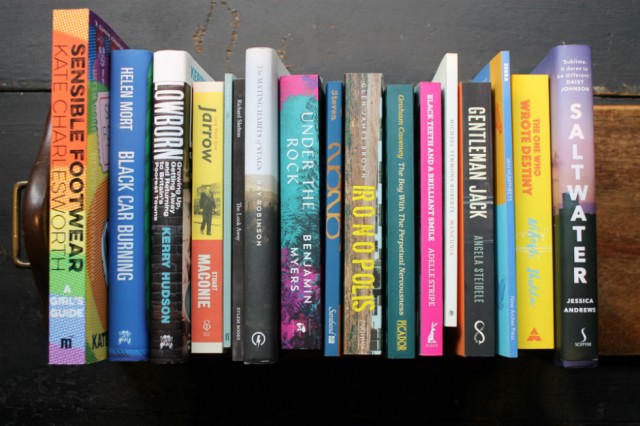
It is this centre, and the university, that have enabled the return of the Portico Prize through a new partnership with the library. As the wider world has come to adopt the same focus on location which has long motivated the award, the two institutes have recognised their shared interests, and the ripeness of the moment for a return.
A series of events hosted by the library in the run-up to the award have provided further testament to the popularity and breadth of this newfound genre. Entitled Rewriting the North, each of the series features two acclaimed contemporary authors speaking on the roles of place and the North in their craft. The picture painted of Northern literature over the series is a vivid patchwork of styles and stories. Jacob Polley reflected poetically on the Anglo-Saxon names which persist in the region long after their meanings have been lost. Michelle Green imagined the inner world of a hunger-striking suffragette in a Manchester prison. Jennifer Makumbi pondered why and how a nation with no native lions became so fixated upon carving them in their public spaces. More still will explore these themes and others in the coming months.
These events and their enthusiastic attendants have underscored an appetite for Northern place writing and, by extension, the Portico Prize. But they have also highlighted the difficulties and contradictions inherent in it. On the smallest conception of ‘the North’, it is a region of some fourteen million people spread across fourteen thousand square miles, and within it are innumerable elements, relationships, landscapes and worlds. The longlist (above), announced this week, gives some insight into this breadth; among its pages are stories of council estates, moors, rock climbers, LGBTQ movements, and red deer, to name just a few.
And so, this celebration of the North, along with its authors and judges, poses the question: is there something which unites these multifarious elements? Is there some true ‘spirit of the North’ which can be identified without it dissolving away into nothing? Or worse, into cliche.
Aoife Larkin of the Portico Library describes the phrase as ‘dilute’ and purposefully ambiguous, so that it can ‘remain accessible’ to all the contradictory things that constitute the region; more than anything it is a ‘vehicle to celebrate the skill, intelligence and creativity’ of writers working in and on the North. Professor Jean Sprackland, winner-cum-judge of the Portico Prize, agrees that there is ‘no one spirit of the North’. But she also interprets the award as ‘partly about a rebalancing’; part of the slow shifting of attention away from the overbearing presence of London and towards literary industries which are ‘alive and kicking’ in the North and elsewhere. In this interpretation there is a glimpse of the closest thing possible to a spirit that unites the region.
If the North is anything, it is certainly most readily conceived of, from inside and out, as in opposition to London and the South. But to go further, perhaps the ‘spirit of the North’ need not be thought of as some unifying element present throughout. Rather, it can describe the vitality of the region, and the pride taken in its countless parts by the populations that live there, and the writers that write of them; its spirited self-affirmation, rather than its soul. This pride is evident across the arts and cultural scenes in the North, but it is perhaps the literary landscape that has changed and progressed most dramatically of late. The return of the Portico Prize, to celebrate and shine a spotlight on this burgeoning industry, is a welcome and timely addition to the local cultural calendar.
Joe Fenn
The Portico Prize Longlist Event takes place at the International Anthony Burgess Centre 22 October. The winner of the Portico Prize will be announced in January 2020
Images courtesy The Portico Library and Joe Fenn



